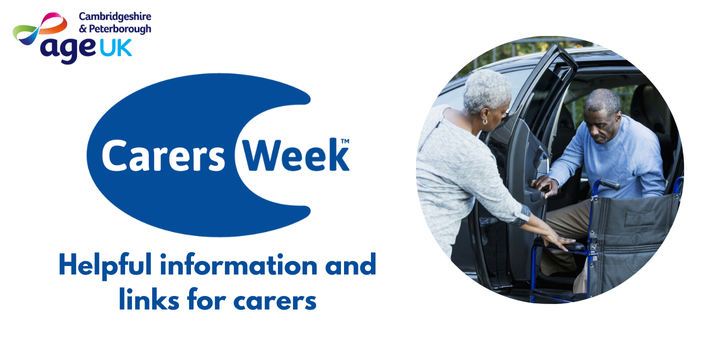Carers Week 2024

Published on 10 June 2024 07:00 AM
Carers Week is an annual campaign to raise awareness of caring, highlight the challenges unpaid carers face and recognise the contribution they make to families and communities throughout the UK. It also helps people who don't think of themselves as having caring responsibilities to identify as carers and access much-needed support.
Every day, 6,000 people in the UK start looking after someone close to them, unpaid. Caring can be hugely rewarding, but it can also have an impact on all aspects of your life. Looking after someone without the right information and support can be tough.
Here is some useful links and information to help support carers:
Financial Support for Carers
Free Carers Assessment
Contact your local council use this link to find yours Find your local council - GOV.UK (www.gov.uk)
A carers assessment is free and the council will decide if you are eligible for any support.
Carer's Allowance
Carer's Allowance is the main welfare benefit to help carers.
To be eligible for Carer's Allowance, you must:
-
spend at least 35 hours per week caring for someone, whether or not you live with them
-
care for someone who receives certain benefits
-
not be in full-time education or earning more than £151 a week (after tax and expenses)
Use Age UK benefits checker to see what benefits you may be entitled to as a carer
Balancing Work and Caring
Flexible Working
If you've been working for your employer for six months, you have the right to request flexible working arrangements to help you fulfill your responsibilities. Flexible working arrangements could help you find a work pattern that suits your caring role and gives you more time to take care of yourself, too.
You can make one request for flexible working per year. Though your employer doesn't have to say yes, they need a sound business reason for saying no – and, if needs be, you can ask again the following year.
Flexible working might involve:
-
Working compressed hours. This is when you work the same number of hours but over fewer days – such as 8am to 6pm over four days rather than 9am to 5pm over five days.
-
Changing your working hours. Perhaps you could start work earlier or finish later to help you with your caring responsibilities.
-
Part-time working or job sharing. This is when you share your job with another colleague and split the hours between the two of you.
-
Location flexible working. Perhaps you could work from home all or part of the time, be on call from wherever you want to be based, or work in different branches of your organisation if you sometimes need to be near a relative, care home or hospital.
Emergency Time off
You also have the right to time off in an emergency when it involves someone who's dependent on you – for example, your partner, your parent, or your child. If someone else relies on you for help, they may also count as a dependent.
Take a Break
Respite Care
In some areas, respite care is provided as a result of your carer’s assessment, while in others it’s provided through a needs assessment for the person you look after. If your assessment or the assessment for the person you care for shows you need respite care, the local council should provide it.
You might be able to get financial support from the council to help you take a break, but respite services are means-tested so you or the person you care for may have to contribute towards the cost.
Day Centres
Age UK Cambridgeshire & Peterborough offer weekly Day Services that the person you care for can attend. This might be a good way for you to have a well deserved break, knowing the person you care for is being looked after.
Friendship Clubs
Friendship Clubs are also an option for the person you care for. Age UK Cambridgeshire & Peterborough have several mainly in Peterborough.
For more information
If you are caring for an older person contact us to find out how we can provide support and help share some of the caring. Call: 0300 666 9860 Email: infoandadvice@ageukcap.org.uk
